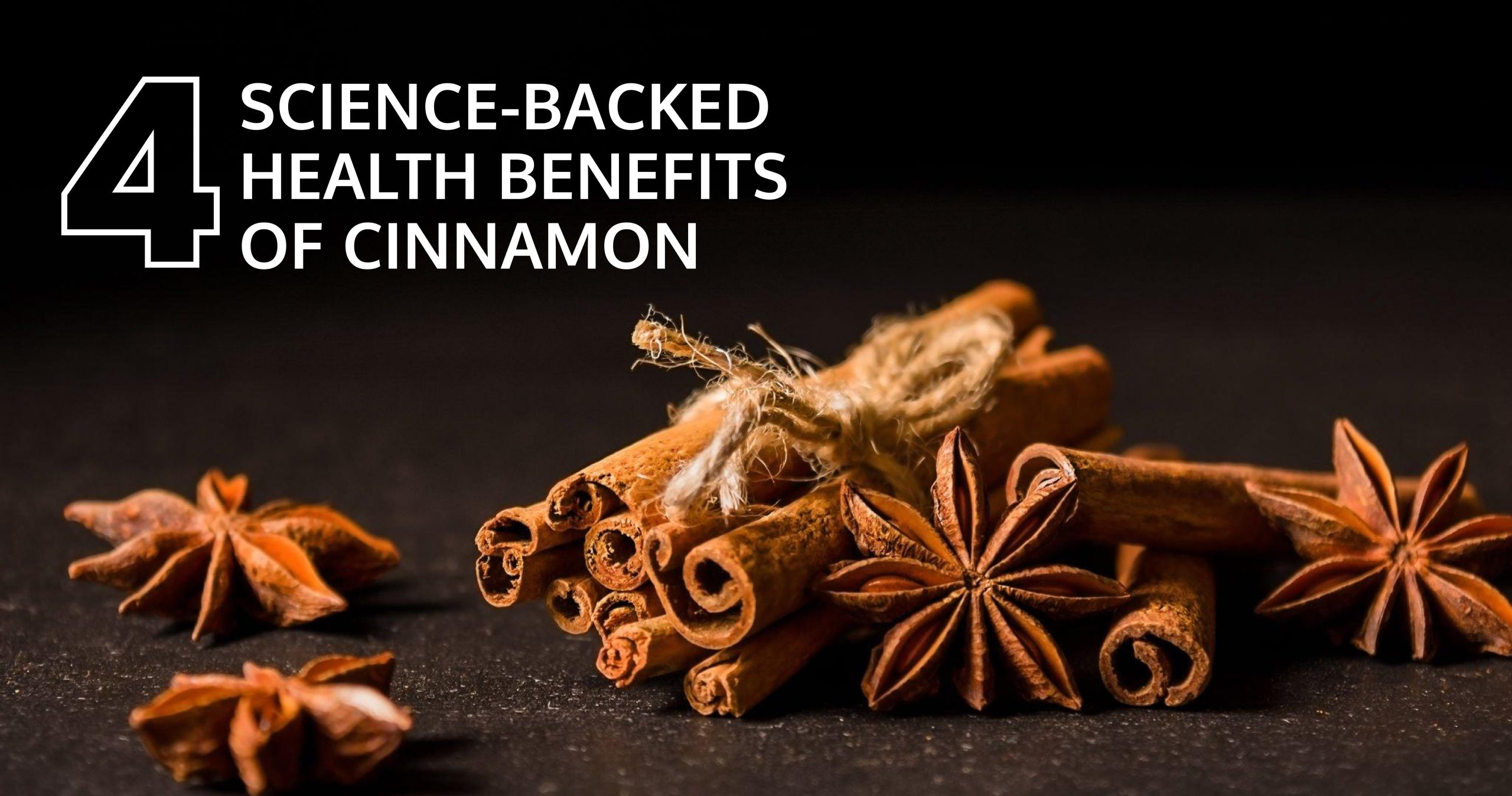Cinnamon benefits: Cinnamon, known as “dalchini” in some parts of the world, is more than just a delightful spice that adds warmth and flavor to your favorite dishes. It’s a centuries-old treasure revered for its incredible medicinal properties.
This blog will delve into cinnamon benefits, exploring its potential role in fertility, its impact on diabetes management, and its ability to help regulate blood pressure.
1. Cinnamon for Fertility Support
Combining cloves and cinnamon might be more than just a fragrant spice blend for those seeking the path to parenthood. Using cinnamon for fertility is not an unheard concept.
In fact, some cultures have long believed in the fertility-boosting qualities of this combination. While scientific research is ongoing, evidence suggests some properties of cinnamon benefits in maintaining reproductive health. [1]
2. Cinnamon Benefits as a Diabetes Ally
Cinnamon and blood pressure have been a long-researched topics. One of the many well-documented cinnamon benefits is its potential to assist in diabetes management. Cinnamon could be a natural ally for individuals dealing with this chronic condition. Insulin sensitivity is essential for regulating blood sugar levels and metabolism.
Some studies indicate that cinnamon may enhance insulin sensitivity, potentially reducing insulin resistance. [2] This can lead to better blood sugar control, making it valuable for individuals with metabolic syndrome and type 2 diabetes.
3. Cinnamon Benefits for Blood Pressure Check
Hypertension, or high blood pressure, is a common health concern with profound implications. While cinnamon should not replace prescribed blood pressure medications or lifestyle changes recommended by a healthcare provider, it can be a valuable addition to a holistic approach to blood pressure management.
Its potential impact on blood sugar control and antioxidant properties suggest that cinnamon may play a role in helping to keep blood pressure in check, supporting overall cardiovascular health. [3]
4. Cinnamon has Antioxidant Properties
Antioxidants protect the body from oxidative damage caused by free radicals. Cinnamon is renowned for its remarkable antioxidant content, particularly its abundance of polyphenols. Polyphenols are a diverse group of naturally occurring compounds in plants known for their potent antioxidant properties. [4]
These antioxidants help combat oxidative stress and reduce inflammation, contributing to overall health. Cinnamon’s antioxidant properties are so abundant that it can even be used as a natural food preservative.
Cinnamon’s Potential in Neurodegenerative Diseases
Neurodegenerative diseases, such as Alzheimer’s and Parkinson’s, pose significant challenges due to their progressive nature and limited treatment options. While research is ongoing, there is growing interest in the potential of cinnamon benefits in eliminating these conditions. [5]
Cinnamon extracts have demonstrated neuroprotective properties in animal studies. They have been shown to protect neurons from damage, normalize neurotransmitter levels, and improve motor function in animal models of Parkinson’s disease.
Cinnamon’s Role in Cancer Prevention
Cancer is a complex and multifaceted disease with various contributing factors. While cinnamon is not a cure for cancer, emerging research suggests that it may have a role in cancer prevention. Test-tube and animal studies have indicated that cinnamon extracts may possess anticancer properties.
These studies suggest that cinnamon can inhibit the growth of cancer cells, particularly in cancers like ovarian cancer.[6] Cinnamaldehyde, an essential compound in cinnamon, has shown potential for blocking the expression of specific proteins involved in cancer growth.
Cinnamon should not be viewed as a replacement for established cancer treatments but as a potential component of a comprehensive cancer prevention strategy, including a healthy diet and lifestyle.
Types of Cinnamon: Ceylon vs. Cassia
We all have seen the Cinnamon sticks at some point. Cinnamon comes in two primary varieties, Ceylon and Cassia, each with distinct characteristics.
Ceylon, known as “true cinnamon,” offers a delicate, mildly sweet flavor, lighter color, and lower coumarin content, making it a safer choice for regular consumption, especially for those with health concerns. It is slightly more challenging to find but is prized for its quality.
In contrast, Cassia cinnamon is more common, with a bolder, spicier flavor, and is readily available and affordable. While it excels in recipes that require a strong cinnamon presence, its higher coumarin levels suggest moderation in regular consumption.
The choice between the two hinges on culinary preferences and health considerations, with both varieties adding depth and warmth to dishes.
Conclusion
Cinnamon benefits stand as an extraordinary gift from nature in the world of spices, and its benefits extend far beyond the realm of taste.
Whether you sprinkle it on your morning oatmeal or brew it into a soothing tea, cinnamon, whether Ceylon or Cassia, deserves a prominent place in your pantry and on your plate. It’s a versatile companion that elevates your culinary creations and supports your well-being.
So, embrace the warmth and aroma of cinnamon as it weaves its magic, and stay tuned for more insights into the captivating world of spices and their profound influence on our health.
References

